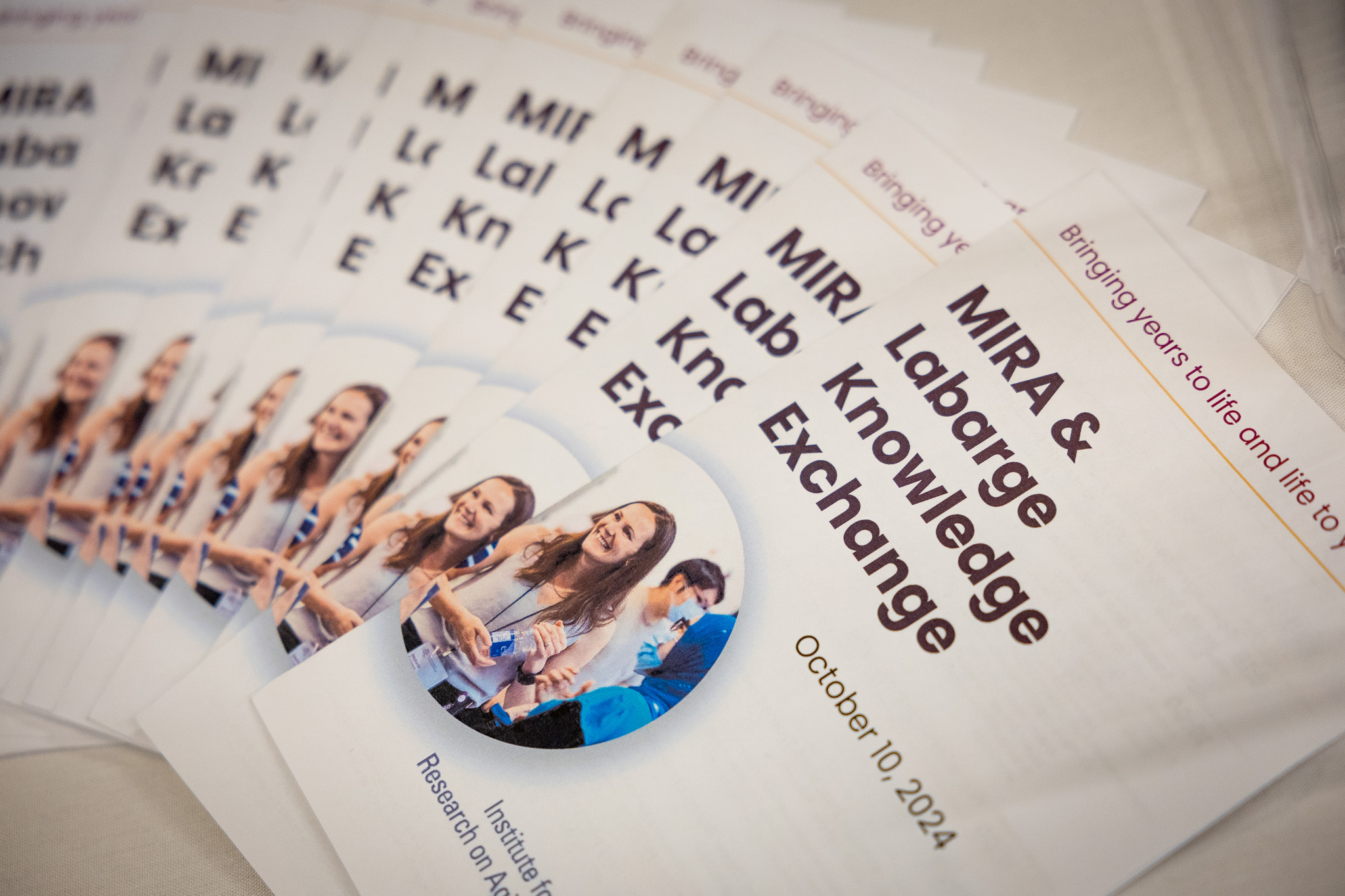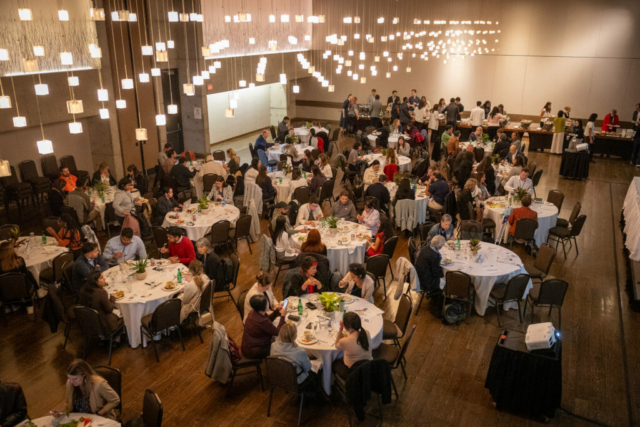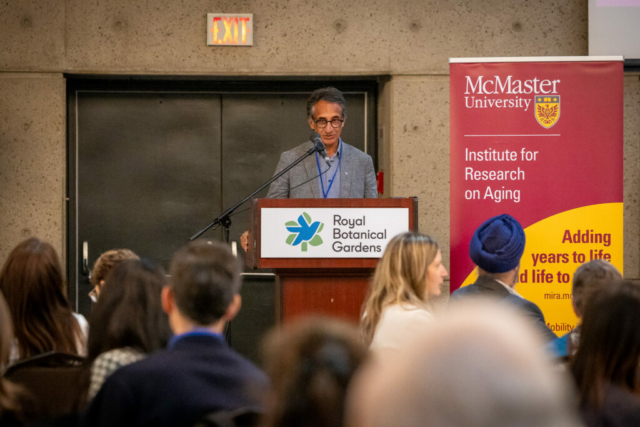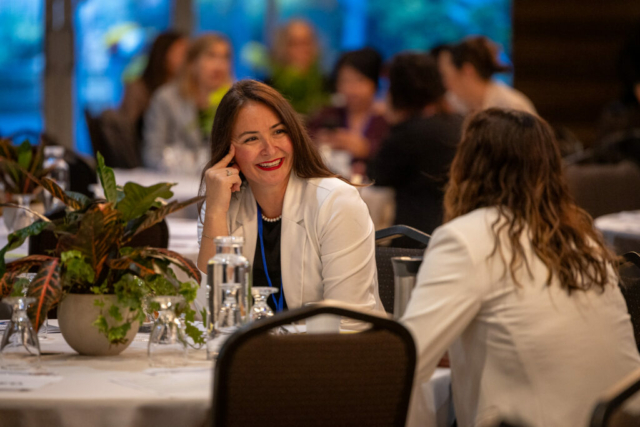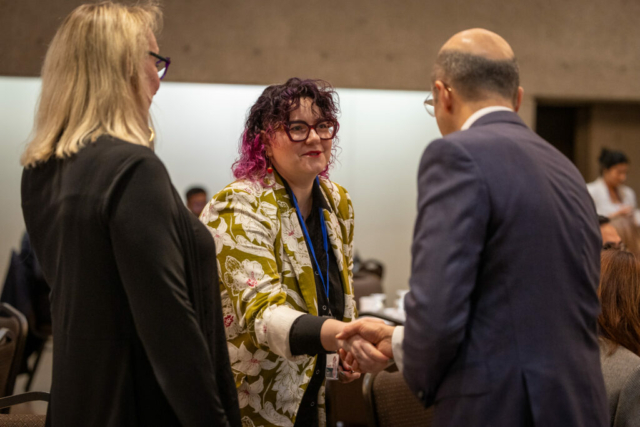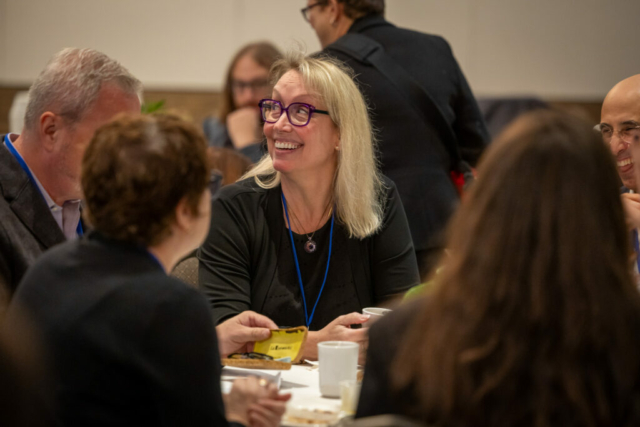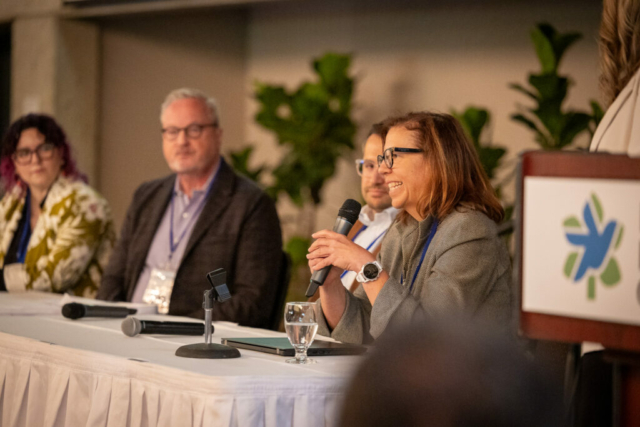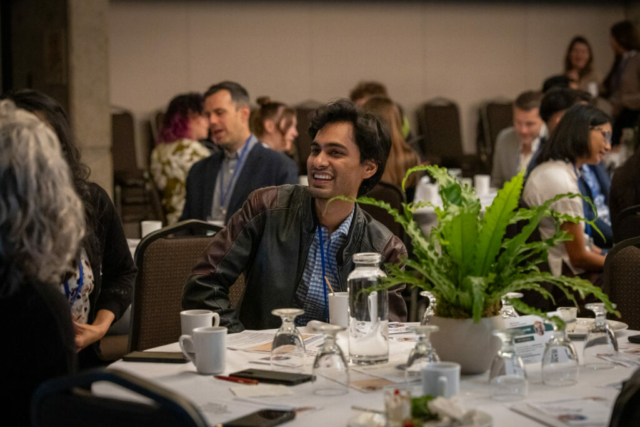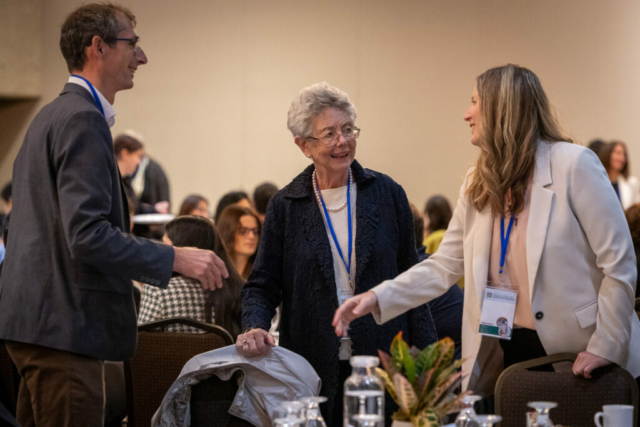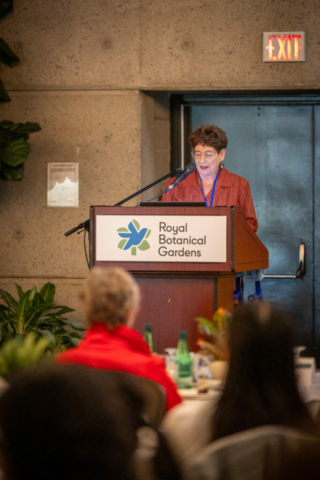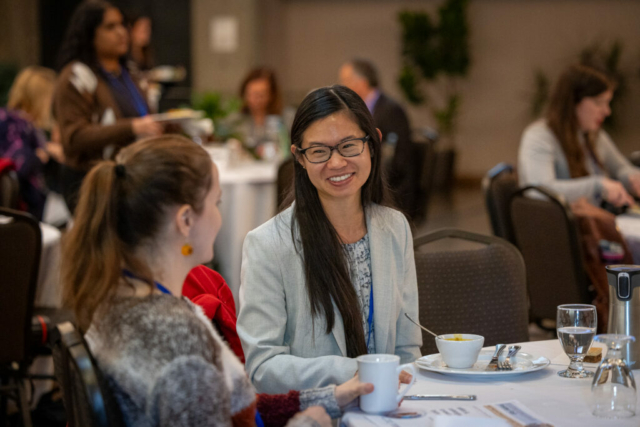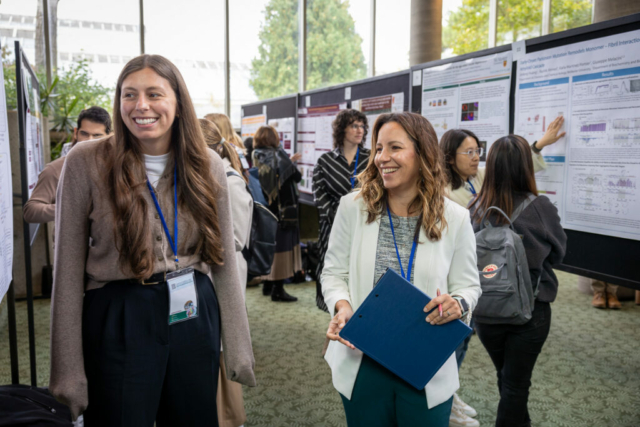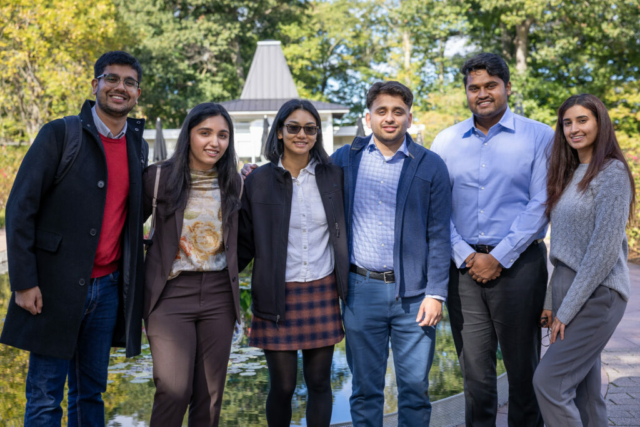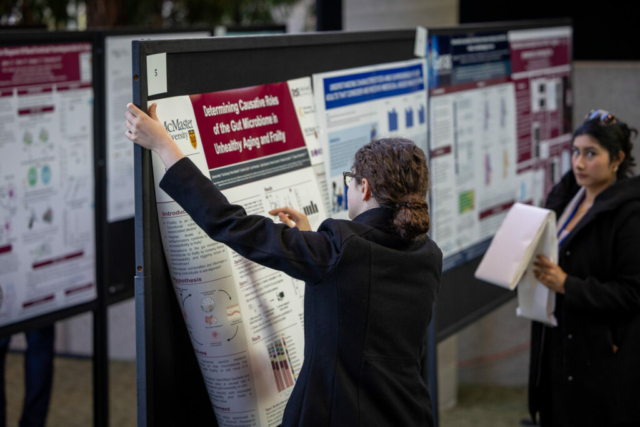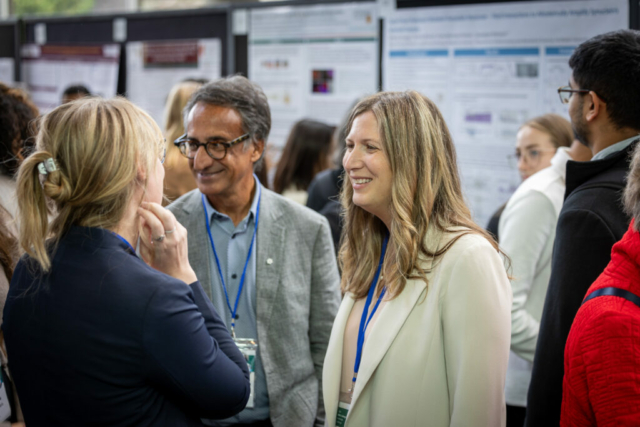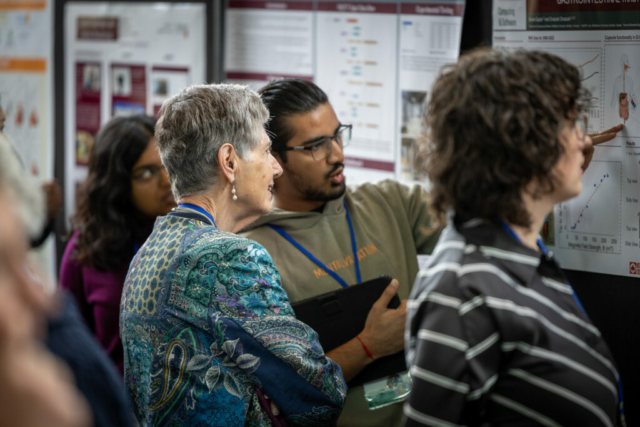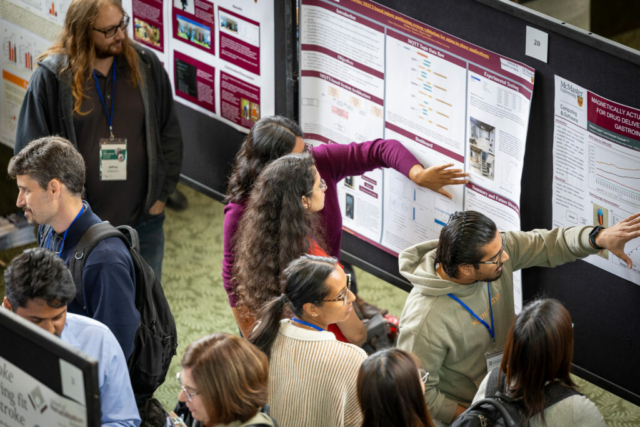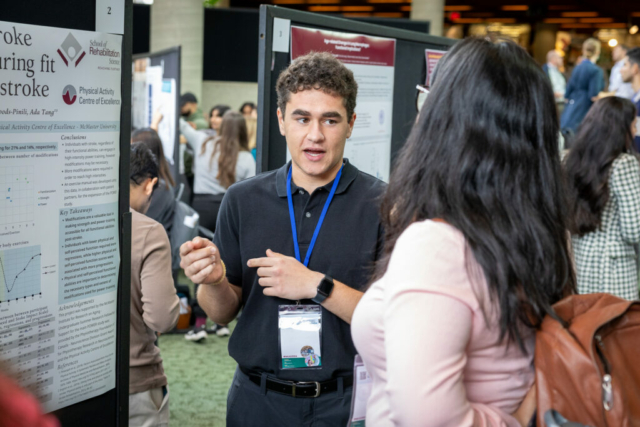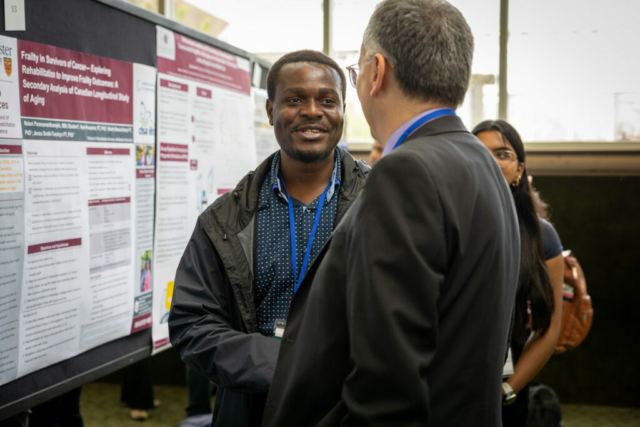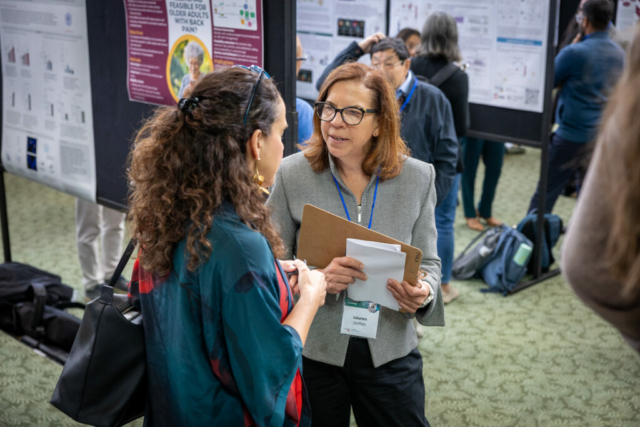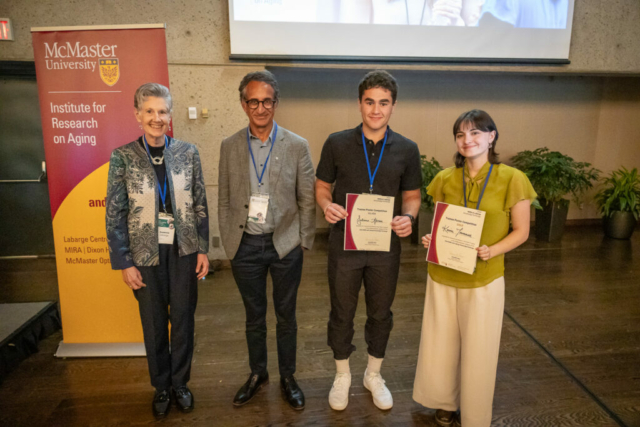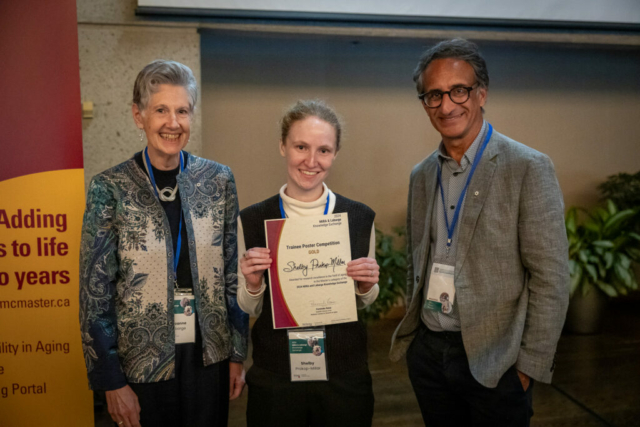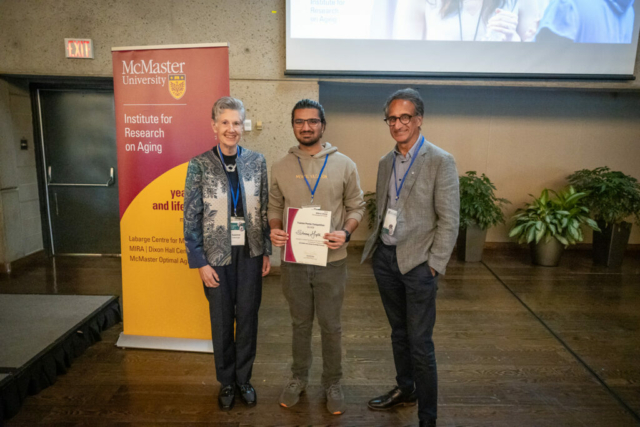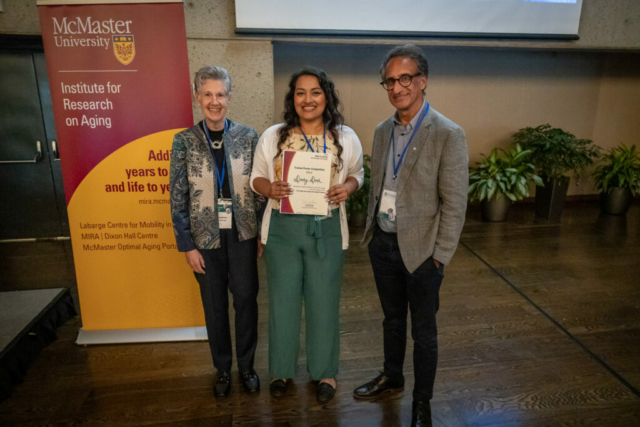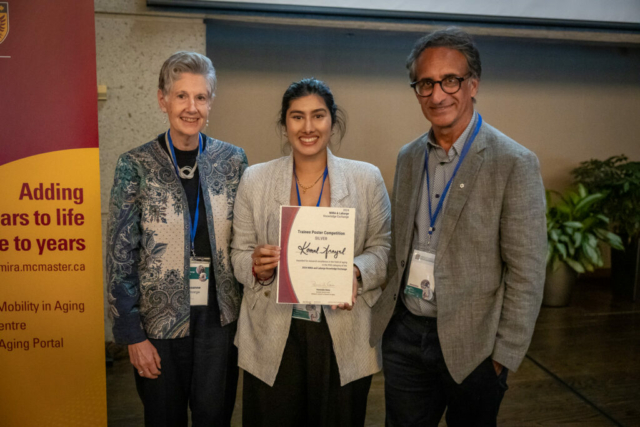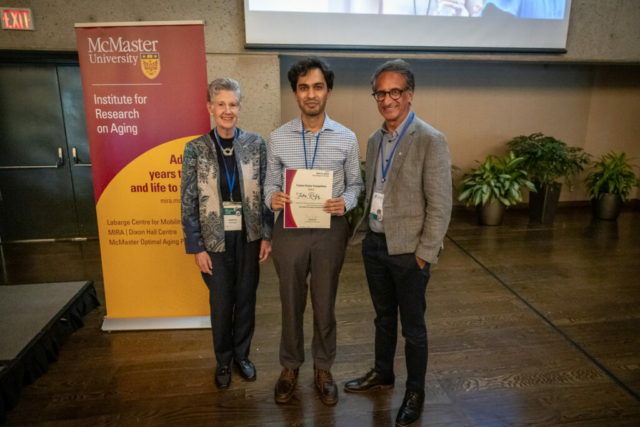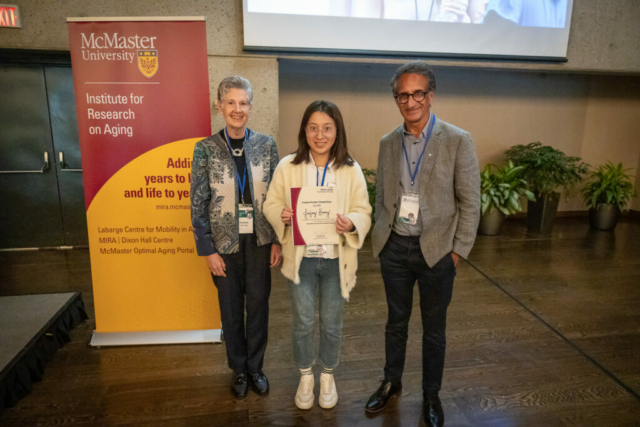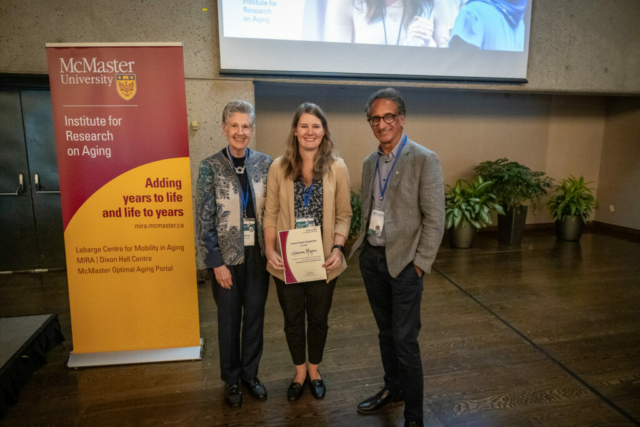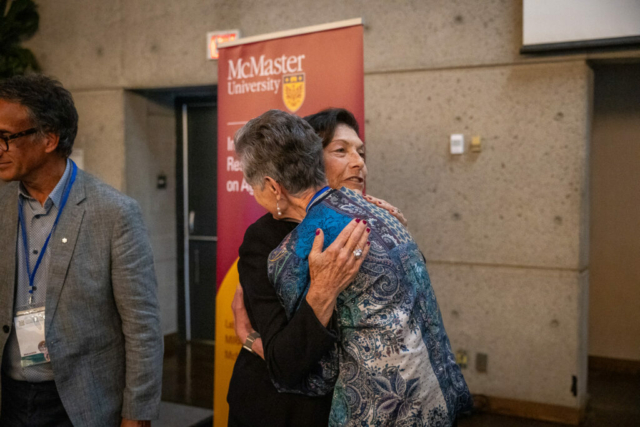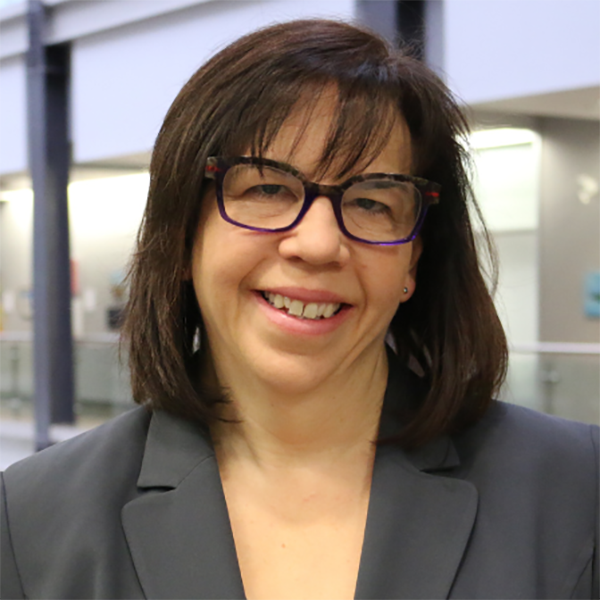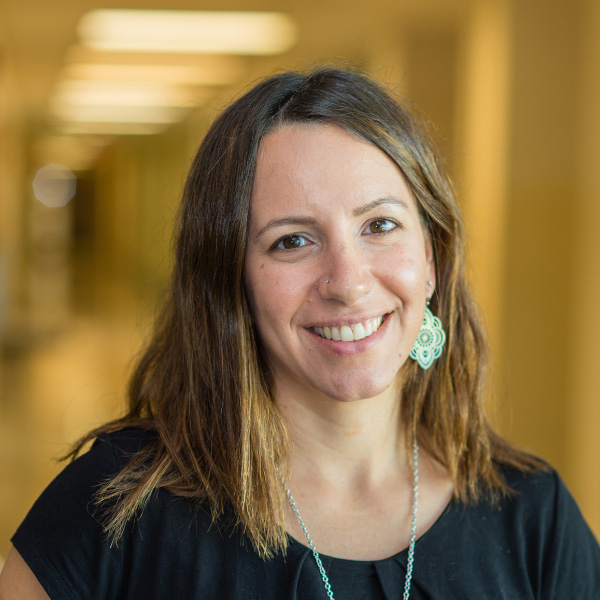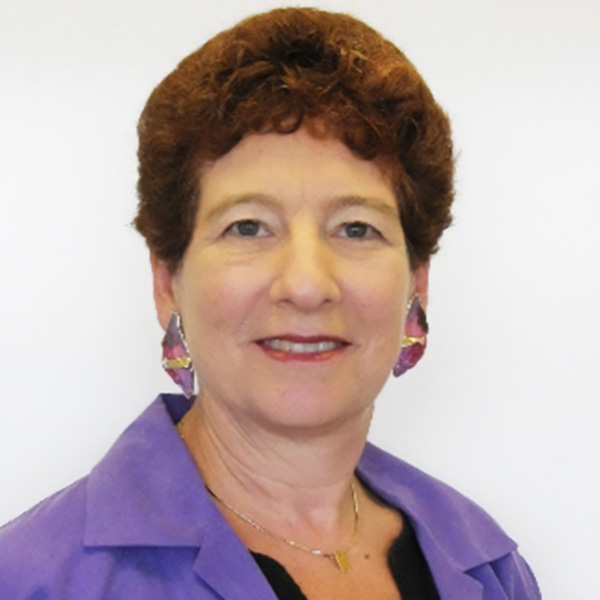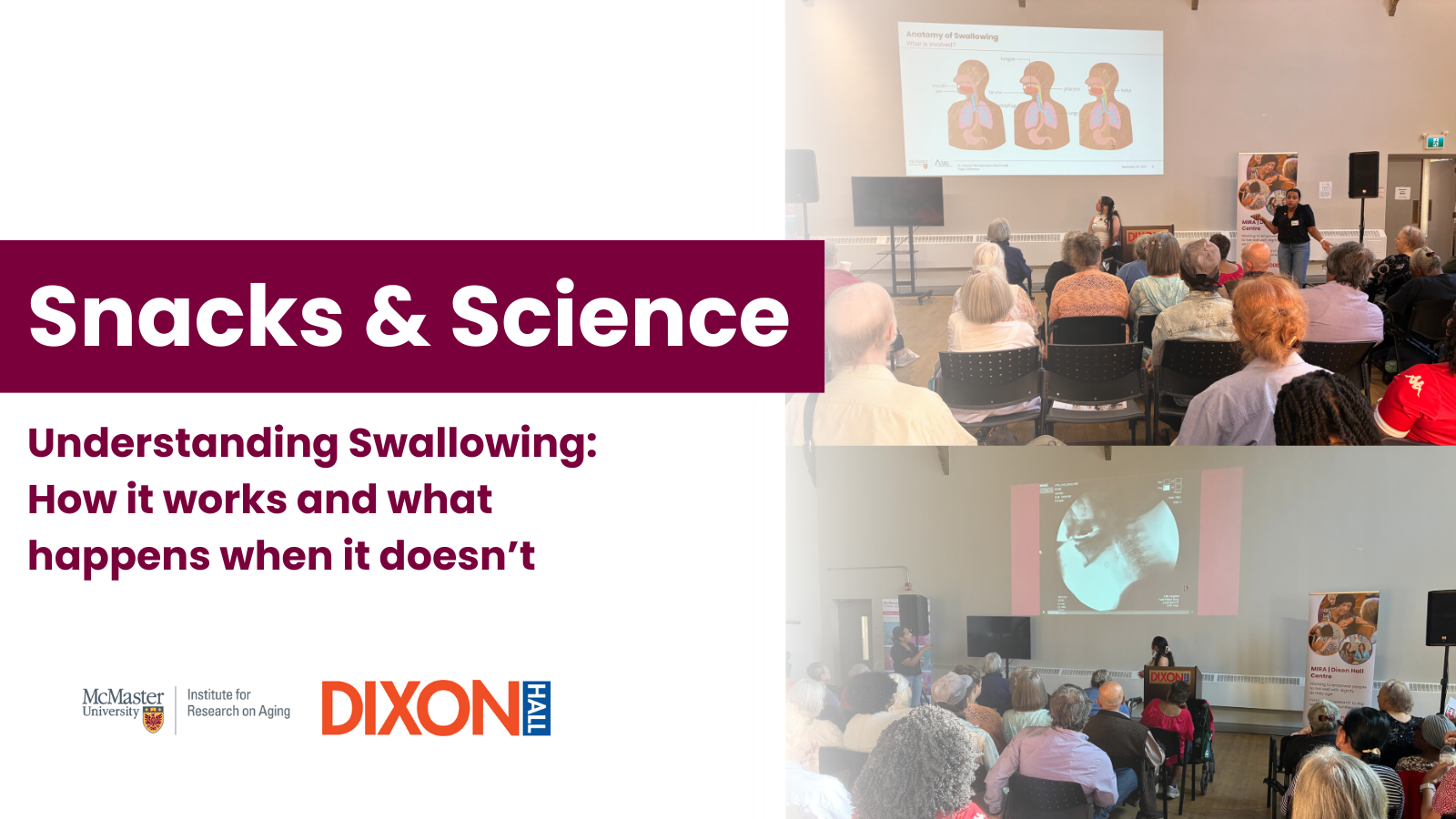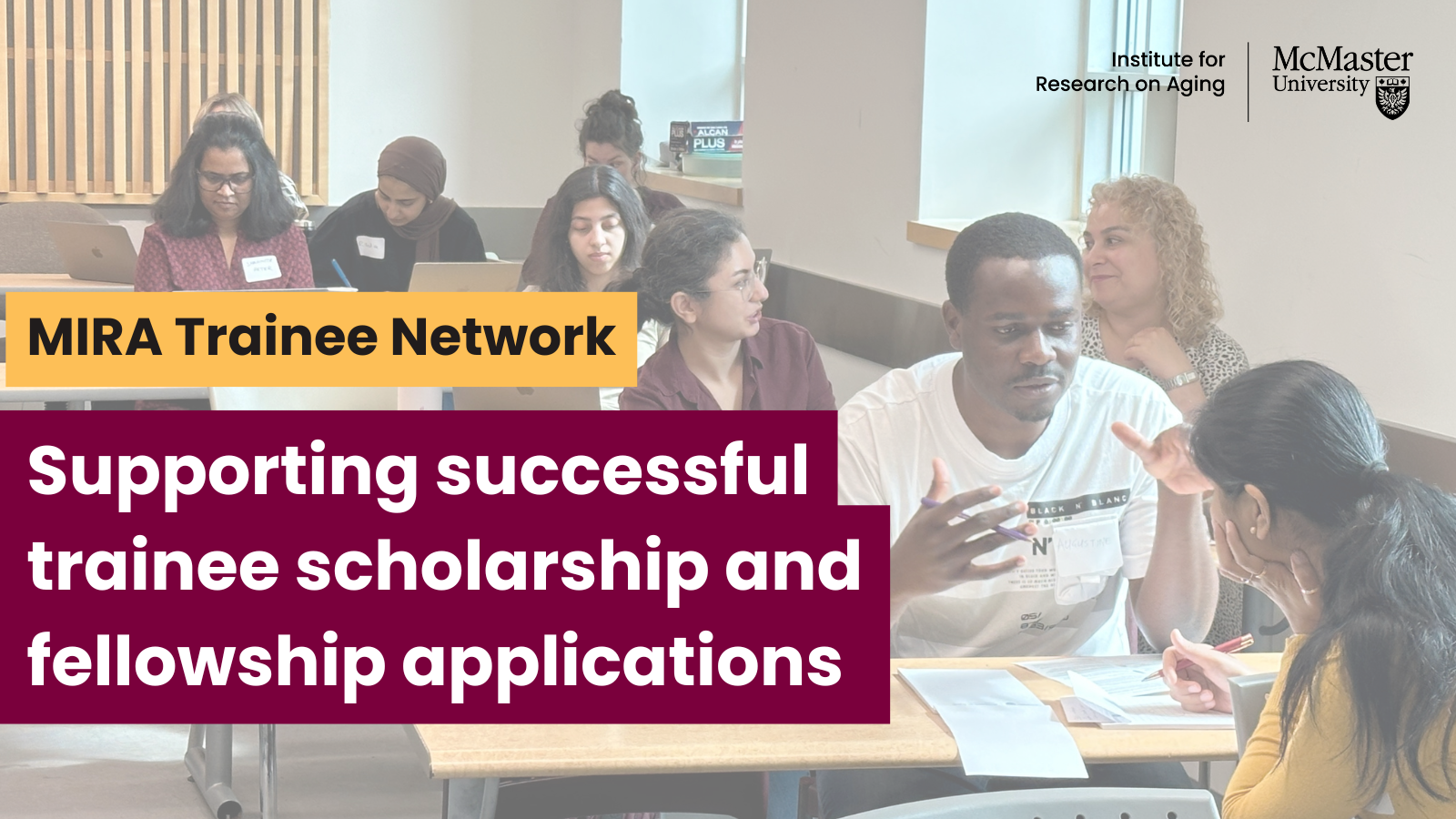On October 10, the McMaster Institute for Research on Aging (MIRA) welcomed over 150 faculty members, trainees, and community partners to the annual 2024 MIRA and Labarge Knowledge Exchange to celebrate aging research collaborations and accomplishments over the last year—and introduce exciting new directions and upcoming innovations for the next.
The annual event showcased the impactful work in aging research which flows through MIRA’s two focused research centres — the Labarge Centre for Mobility in Aging (LCMA), which examines the biological, behavioural, technological and environmental factors that can affect individual and community mobility in older adults, and the MIRA | Dixon Hall Centre, a unique partnership with a multi-service agency focused on addressing poverty, social injustices and isolation across the lifespan.
Naming MIRA as “a cornerstone of McMaster’s commitment to aging research,” Dr. Suhkvinder Obhi from the Office of the Vice President of Research welcomed McMaster’s aging research community to Burlington’s Royal Botanical Gardens. MIRA’s Scientific Director Parminder Raina presented an inspiring overview of a year marked by innovation, collaboration and a commitment to research that makes a difference. The sentiment was strengthened by Marla Beauchamp, Director of the MIRA | Dixon Hall Centre, who detailed an impressive suite of impactful, community-driven research from the Centre.
2024 offered fresh new twists to the Institute’s flagship event. As always, the MIRA and Labarge Knowledge Exchange celebrated MIRA’s mission to crystalizing diverse research skillsets and insights into impactful research outputs, featuring exciting research presentations from an esteemed cross-section of projects from researchers from all six McMaster Faculties.
“The Institute is meticulous in addressing complex research questions about how to age well, developing solutions forged from interdisciplinary perspectives, and ensuring results are impactful to a broad, inclusive and diverse community.”
Suhkvinder Obhi, Associate Vice-President, Research, Society and Impact of McMaster University
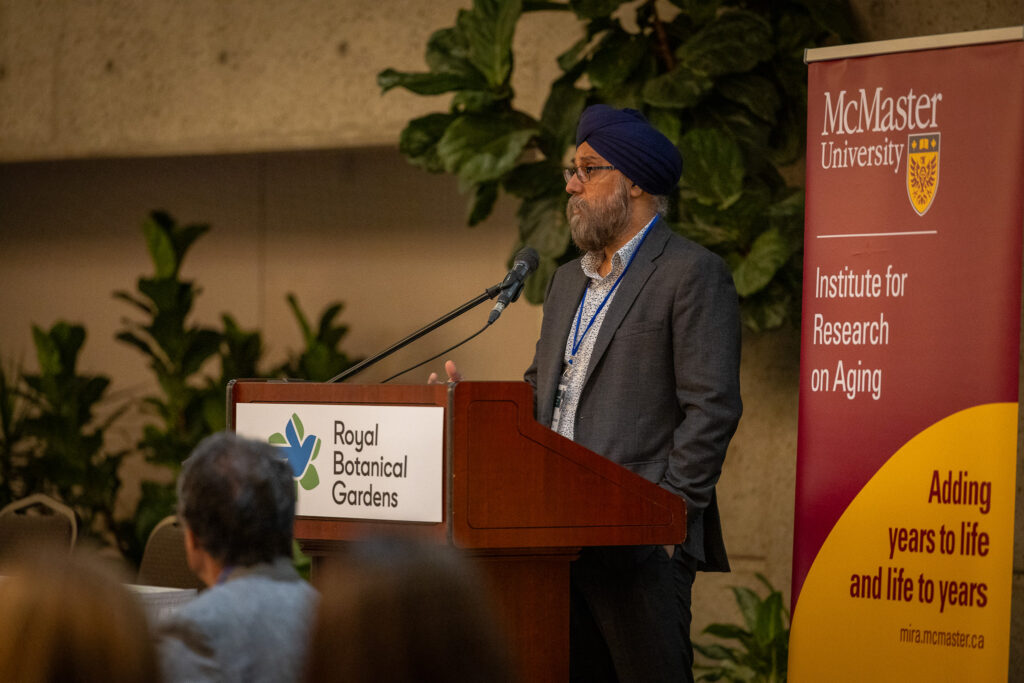
For the first time, a live announcement of over $600K in new funding through eight Catalyst Grants and six Postdoctoral Fellowships. Highlighting rising stars in aging research, eight Catalyst Grants projects led by early-career researchers on cross-Faculty teams join six PDFs from across McMaster in addressing varied conceptions of physical, social, financial and digital mobility: researching topics ranging from fall prevention, climate change, pain, cognitive decline, joint infections, artificial intelligence, optimal aging among migrant returnees and gig work for older newcomers. For more information on funded projects, please click here.
A cornerstone of the event is always the highly anticipated poster fair, this year hosting over fifty entrants presenting projects addressing questions in aging from all research perspectives. This year’s event explored the wide range of approaches to mobility through research in action, including live demonstration of a gait analysis tool currently in use at Hamilton Health Sciences locations, an introduction to new CLSA olfactory measures and tours of MDTRC’s Mobile User Experience Lab (MUXL), which brings research to communities that may not have access.
The MIRA and Labarge Knowledge Exchange provided an opportunity to introduce new, exciting directions for the institute, include a new Program of Research in Aging and Pain, led by Dr. Luciana Macedo. An overview of the program preceded an in-depth analysis of exercise and the brain, presented by Dr. Margaret Fahnestock. A focus on trainee research highlights saw presentations on future directions in this space, including research by Stevie Foglia on augmenting the brain to treat chronic pain. Alexandra Mayhew also presented research using CLSA data to develop normative values for assessing strength and functioning in older adults, work that has been awarded the Dhole-Ecclestone prize.
The event closed with words from Suzanne Labarge, McMaster’s former chancellor and generous supporter of aging research, who announced poster competition winners (listed below), reflected on the year’s accomplishments and provided further inspiration to the future of aging research. Thank you to Suzanne, whose vision and continued commitment to aging research is critical to the success of this vibrant community.
Poster Winners
All posters can be viewed online in the MIRA and Labarge Knowledge Exchange digital poster hall, available here.
Winning posters can be seen by clicking winners names below.
Undergraduate
GOLD: Karina Tavernese, supervisor Evelyne Durocher.
Examining out-of-home participation of older adults in rural Ontario: The ‘Roads Less Travelled’ study
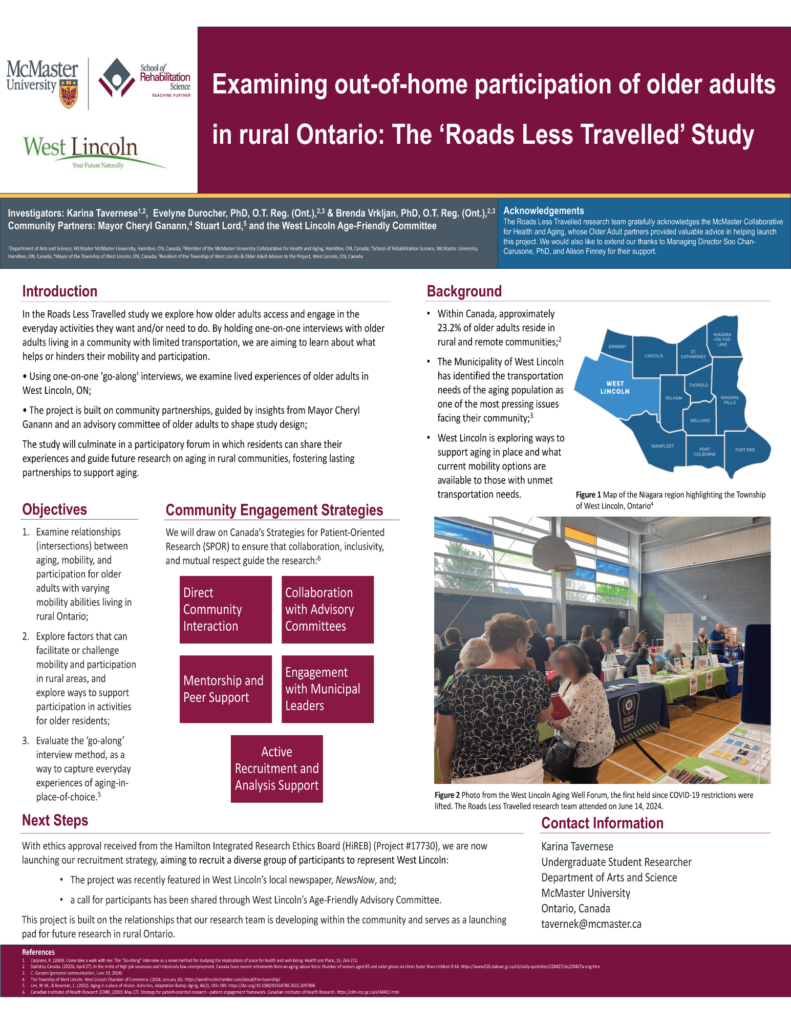
SILVER: Juliano Abreu, supervisor Ada Tang.
Power Exercise for Stroke Recovery (POWER): Ensuring fit for diverse abilities after stroke
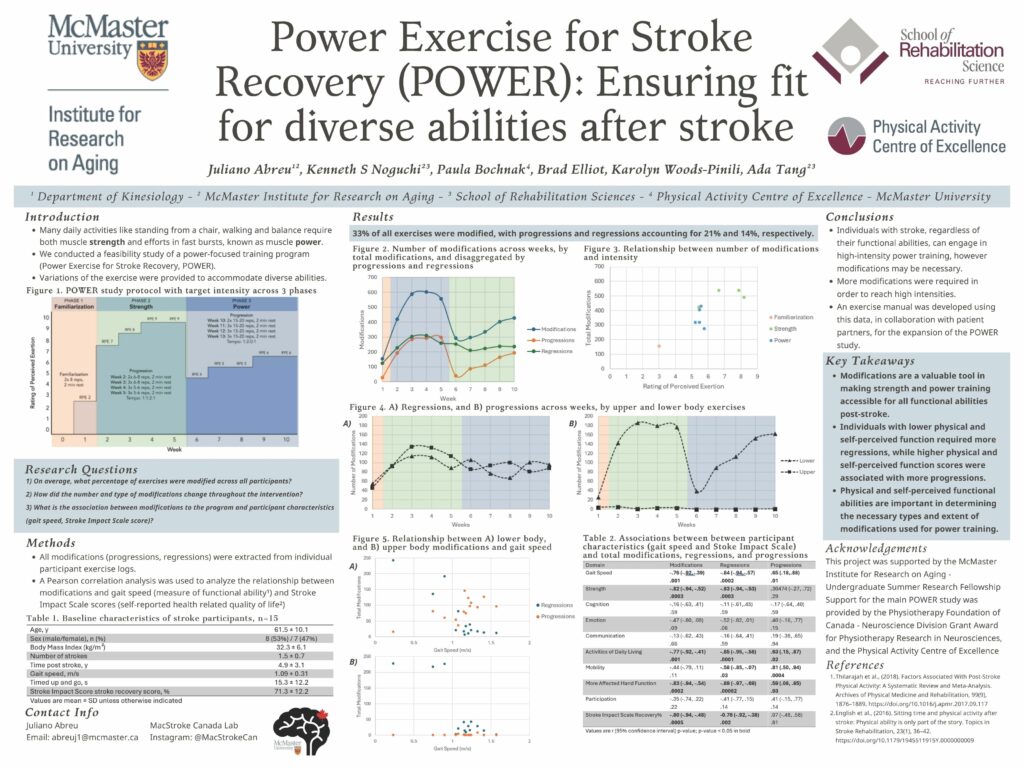
Master’s/MBA
GOLD: Shelby Prokop-Millar, supervisor Dante Duarte.
DIfferential feasibility and tolerability of Deep repetitiVe transcranIal magNEtic stimulation for depression in older adults: A pilot study for the DIVINE trial
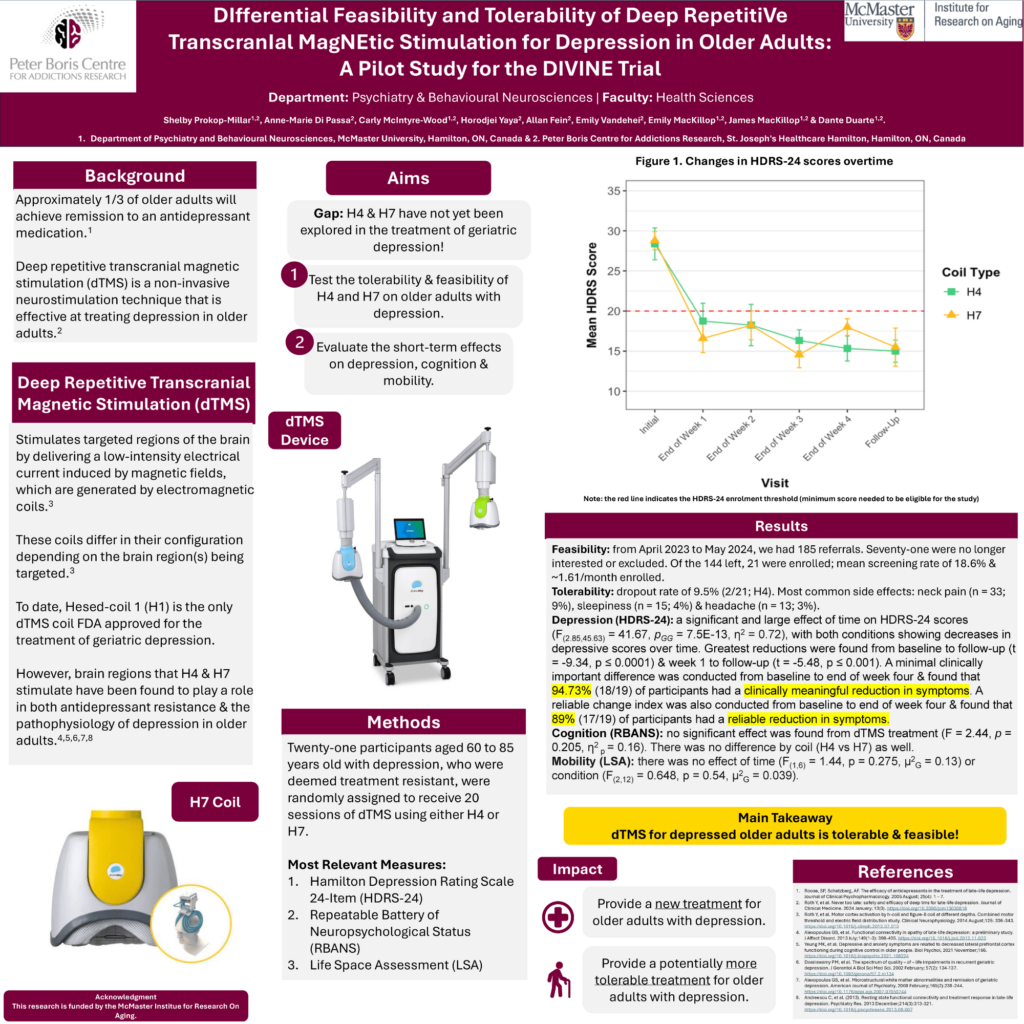
McMaster Psychiatry Department Early-Career Innovation Award co-funded by Labarge Centre for Mobility on Aging
SILVER: Shivam Gupta, supervisor Onaizah Onaizah.
Magnetically actuated capsule mechanism for drug delivery and sampling in the gastrointestinal tract

PhD
GOLD: Darly Dash, supervisor Andrew Costa.
How does long-term care physician commitment to practice influence quality of care? A retrospective cross-sectional study in Ontario
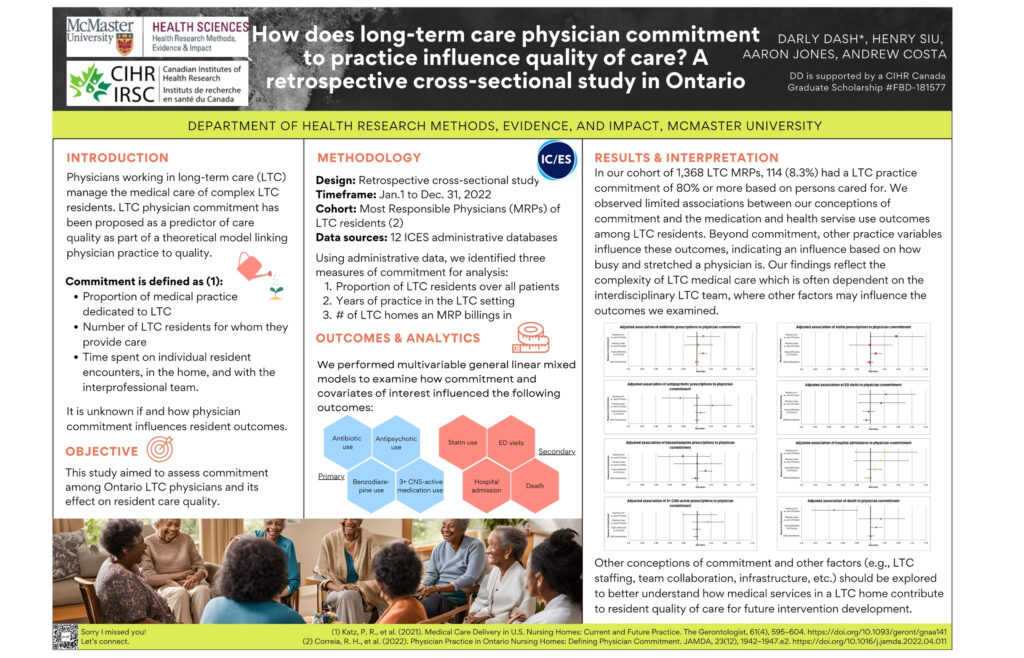
SILVER: Komal Aryal, supervisor Andrew Costa.
Understanding characteristics and experiences of older adults that consider and receive medical assistance in dying
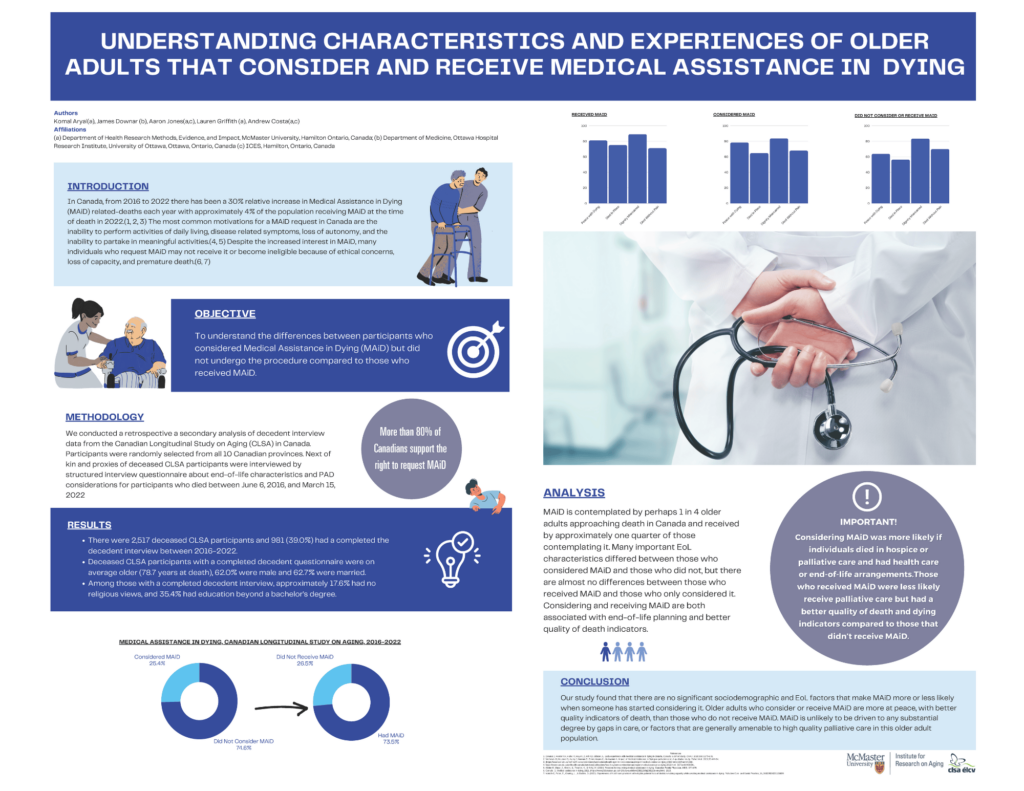
Postdoctoral fellow
GOLD: Talha Rafiq, supervisor Parminder Raina.
Using metabolomics to examine the association between diet, inflammation, and frailty in the Canadian Longitudinal Study on Aging (CLSA)
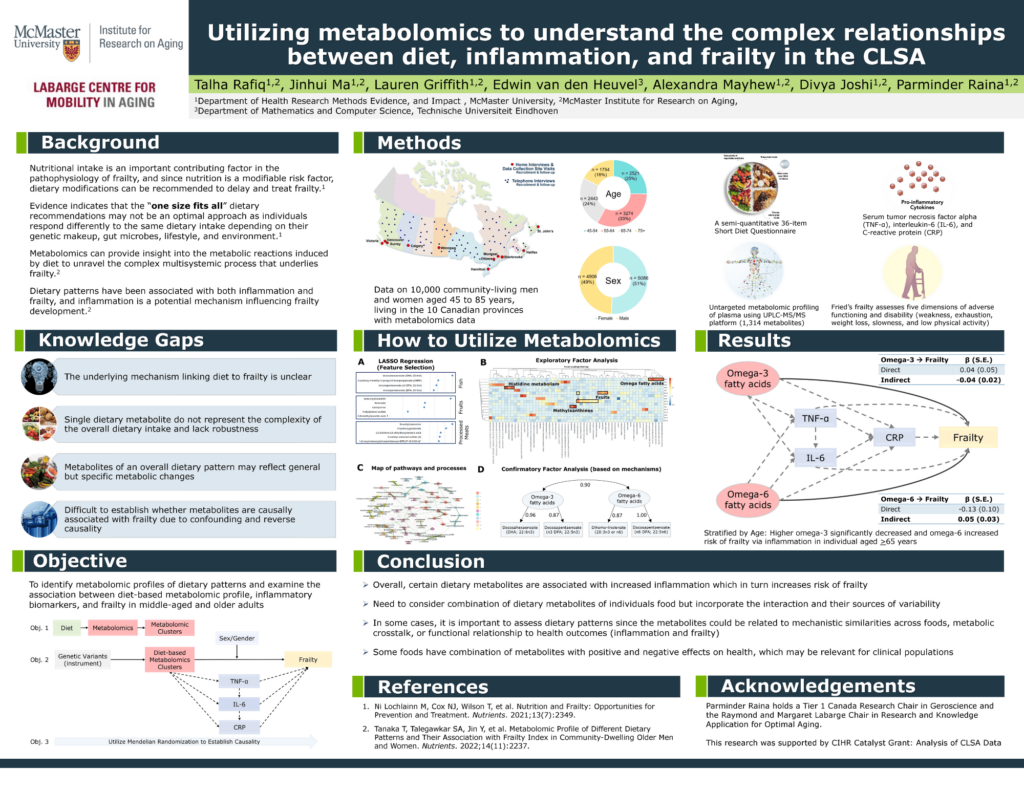
SILVER (tie): Jinfeng Huang, supervisor Giuseppe Melancini.
Structural basis of early-onset Parkinson mutation amplify synuclein’s amyloid cascade
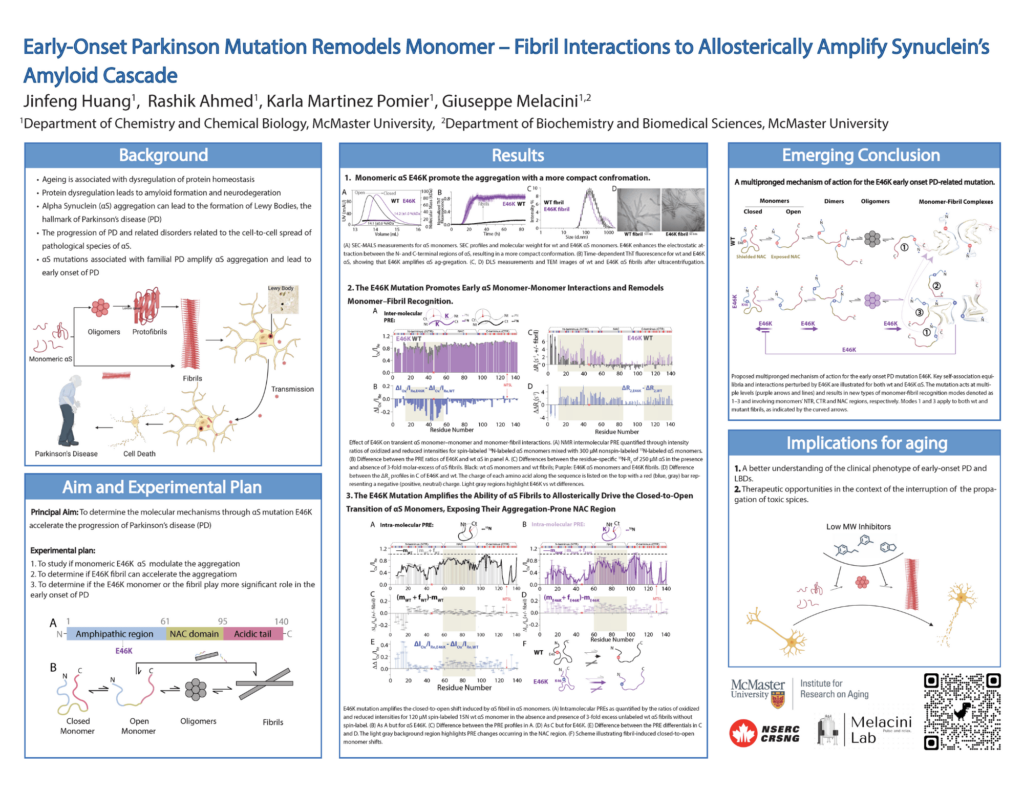
SILVER (tie): Alexandra Mayhew, supervisor Parminder Raina.
Beyond body mass index: How body fat distribution is associated with type 2 diabetes in participants from the Canadian Longitudinal Study on Aging

